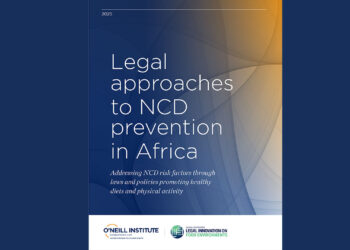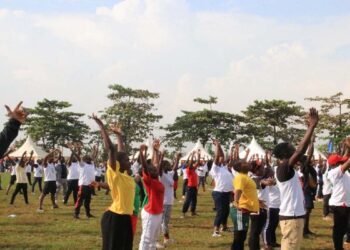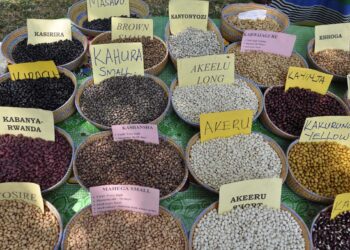0
0
0
0
-
Legal approaches to NCD prevention in Africa: Addressing NCD risk factors through laws and policies promoting healthy diets and physical activity
This edited volume seeks to address this gap by examining how law can be leveraged to prevent diet-related NCDs and physical inactivity in Africa through an interdisciplinary lens. By situating NCD prevention within broader discussions on human rights, equity, and the commercial determinants of health, it underscores States’ obligations to protect the right to health
February 26, 2026 -
Ministry of Health Launches Uganda’s National Physical Activity Guidelines
The Ministry of Health (NCD Department), working together with the Center for Food and Adequate Living Rights (CEFROHT), with support from the International Development Law Organization (IDLO), has finalized Uganda’s National Physical Activity Guidelines to promote healthy living and respond to the growing burden of diet related Non-Communicable Diseases (NCDs) such as overweight and obesity,
February 13, 2026 -
Why the EAC Seed Bill Matters for Farmers’ Rights, Biodiversity, and Our Food Future
Across East Africa, seeds are more than planting material; they are culture, survival, resilience, and the foundation of our food systems. For generations, smallholder farmers have selected, saved, exchanged, and bred seeds traditionally, safeguarding agricultural biodiversity and feeding our communities. Today, this legacy stands at a critical moment. The East African Legislative Assembly (EALA) is
February 13, 2026 -
Experts sound alarm over industrial trans fatty acids
KAMPALA – As Uganda grapples with a surging crisis of non-communicable diseases, health experts and civil society organizations are intensifying the push for strict regulations on industrially produced trans fatty acids (iTFAs). Often hidden in cheap cooking oils, margarines, street foods, confectioneries and other packaged snacks, these invisible killers are now being linked to a
January 29, 2026

I had lost all hope after people tried to take my land in Kiboga. But CEFROHT helped me for free and took my case to court. Because of them, I got my land back. I can now farm and take care of my children. I thank CEFROHT so much for standing with me.
Nasuuna Prossy

Before the training, I didn’t know much about the right to food. Now, I understand that food is not just a need—it is a right. The training by CEFROHT helped me learn how to write stories that can help people know their rights and push the government to do better. I now report with purpose.
Mr. Patrick Jaramoji

Working at CEFROHT has taught me so much. I have learned how law and human rights can help people get healthy food, protect their land, and live better lives. I have also joined* in trainings, court work, and advocacy events. It is a good place to grow as a student and as a person.
Ms. Ampire Rosette

CEFROHT came to our village and taught us how to grow food without chemicals. We now use local seeds, cow dung, and urine to grow healthy crops. Our soil is better, and our food is safe. We even sell some and earn money. Life is changing, and we are very grateful.





















